Learn the basics of vitamin A supplementation and deworming (VAS+D) service delivery to children 6 months up to 5 years of age.
VAS Basics
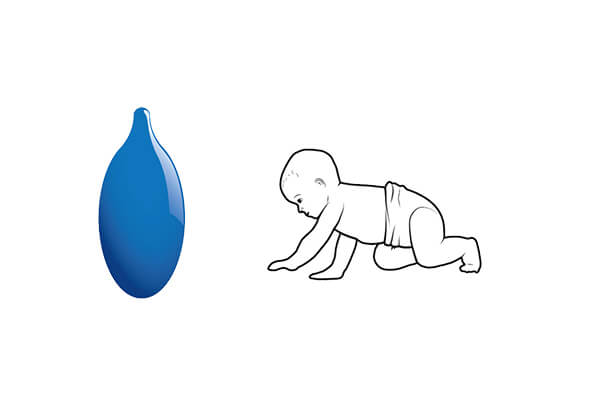
Vitamin A in blue capsules is for children ages 6-11 months.
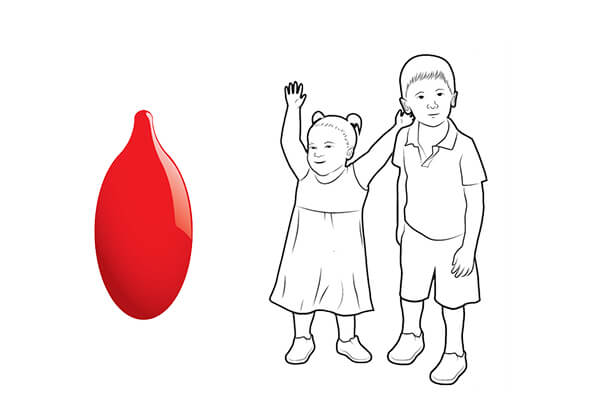
Vitamin A in red capsules is for ages 12-59 months—or 1 year up to 5 years. Once a child turns 5 years old s/he does not need the vitamin A supplementation any more.
Deworming Basics
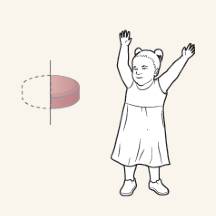
Children ages 12-23 months (1-2 years) get a half tablet of deworming.
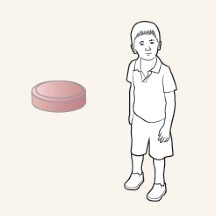
Children ages 24-59 months (2-5 years) get a whole tablet.
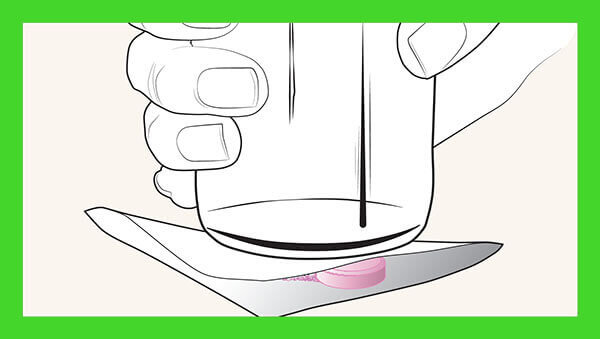
ALWAYS crush deworming tablets for ALL children under 5 years old. Crushing the tablets prevents choking.
Frequency

Children should get services every 4-6 months—or 2-3 times per year.
Your national government may have additional policies about the frequency of dosing.
Benefits of VAS+D
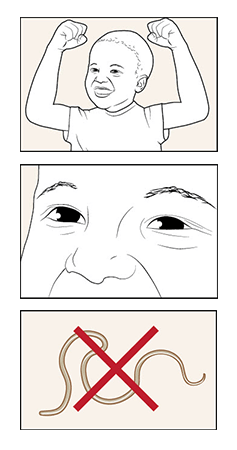
Regular VAS+D helps children grow stronger, have healthy eyes, and be free of worms for better nutrition.
Eligibility
Use 3 criteria to decide if a child is eligible to receive services:
- Age
- Last dose
- Current health
Age
Vitamin A
6 – 59 months
(6 months up to 5 years)

Children age 6 – 11 months are eligible to receive a blue vitamin A capsule. Do not give vitamin A to a child who is younger than 6 months old.

Children age 12 – 59 months (1 – 5 years) are eligible to receive a red vitamin A capsule. Do not give vitamin A to a child who is 5 years old or older.
Deworming
12 – 59 months
(1 year up to 5 years)

Children ages 12-23 months (1 – 2 years) are eligible to receive a half tablet of deworming. Do not give deworming to children younger than 12 months old.

Children ages 24-59 months (2 – 5 years) are eligible to receive a whole tablet. Do not give deworming to children older than 59 months (5 years) old.
Last Dose
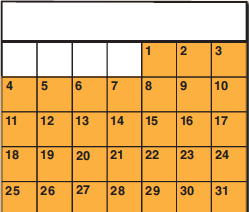
Vitamin A
Do not give vitamin A until at least 1 month has passed since the last dose. Recommended dosing is every 4-6 months.
Deworming
Do not give deworming until at least 1 month has passed since the last dose. Recommended dosing is every 4-6 months.
Current Health
Vitamin A
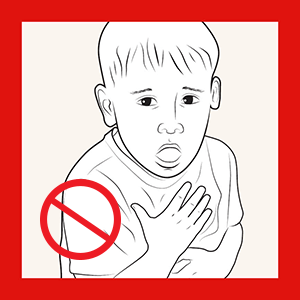
The only health reason why a child must not get vitamin A is if they have severe difficulty breathing today.
A cold or congestion is not the same as severe difficulty breathing. Children with colds can get vitamin A.
DO NOT give vitamin A to a child having severe difficulty breathing. A child with severe difficulty breathing needs emergency care. Severe difficulty breathing increases the risk of choking.
Refer the child for immediate medical help. If a child does not get vitamin A today, never send vitamin A home with a caregiver to give to the child later.
Deworming
There are 4 health issues to check before a child can receive deworming:

- Severe difficulty breathing today
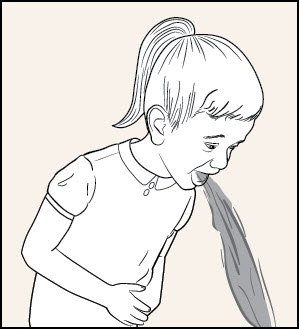
- Vomiting today
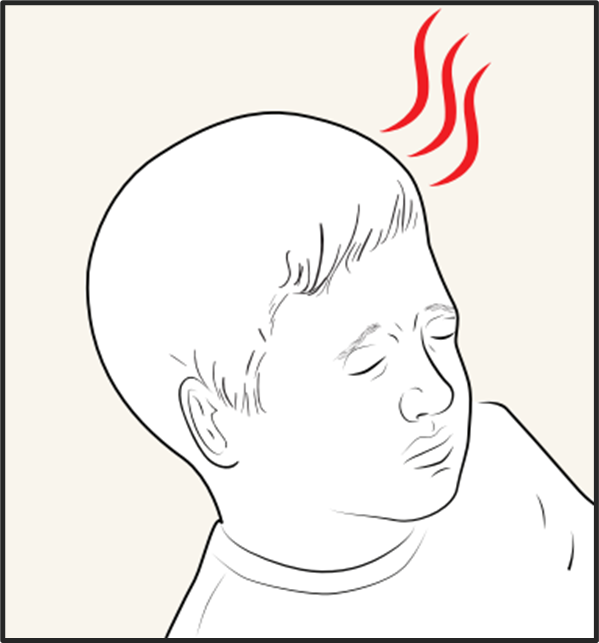
- Fever today

- Severe diarrhea today
Do not give deworming to children who have any of these health concerns. Refer the child for medical help. A child with severe difficulty breathing needs emergency care. If a child does not get deworming today, never send deworming tablets home with a caregiver to give to the child later.
Infection Prevention
Infection Prevention Best Practices
You must be careful to prevent infections. Infections can pass among children or between you and a child. Follow two infection prevention best practices to keep both you and the children safe.
Clean and Sanitize
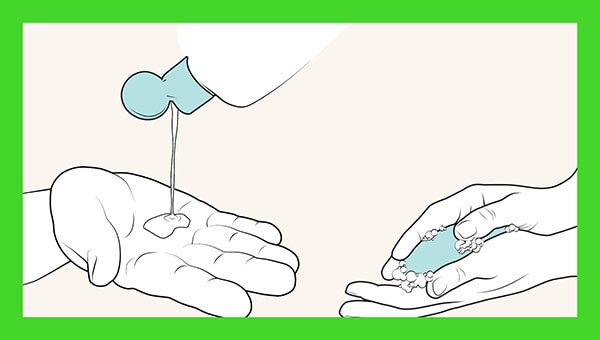
First, you must clean or wash your hands. Do this before dosing every child. You must also clean or wash your hands before and after dosing a child that is sick.
Second, you must not touch a child when you give services.
Wash your hands using alcohol-based sanitizer, or soap and clean water.
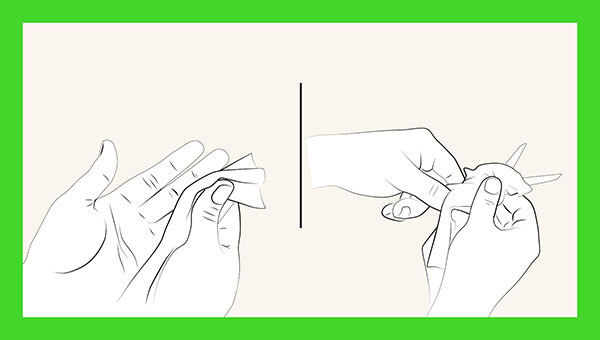
After giving vitamin A, wipe any oil off your hands and scissors. This practice prevents your hands and scissors from becoming oily and slippery.
Eliminate Direct Contact
Only the caregiver should touch the child. The caregiver supports the child’s head and helps open the child’s mouth.
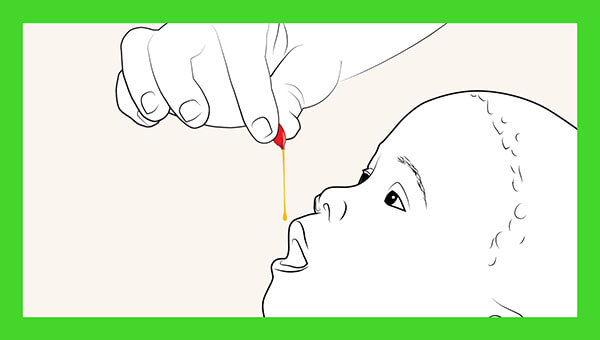
When giving vitamin A, the service provider squeezes the oil into the child’s mouth without touching the child.
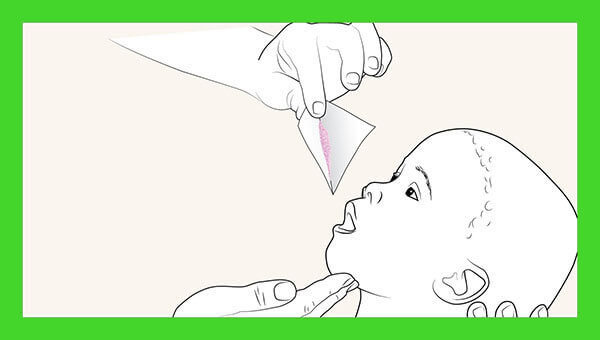
When giving deworming, the service provider slowly pours a half or a whole crushed tablet into the child’s mouth without touching the child.
Giving VAS+D
Vitamin A

After you decide that the child is eligible for vitamin A, first, clean your hands using sanitizer or soap and water.
Make sure the child is calm. This is an important step to make sure the child will not choke. Never force a child to take vitamin A and do not give it to a child that is crying. Wait until the child is calm or ask that the child return later. A caregiver can walk around with the child to try to calm them.
After you are sure that the child is calm, choose the correct dose of vitamin A for the age of the child.

The blue capsules are for children who are 6 to 11 months old.

The red capsules are for children who are 12 to 59 months old (1 year up to 5 years).
Next, ask the caregiver to support the child’s head and help to open the child’s mouth. Remember the caregiver must do this. To prevent infection, you must not touch the child.
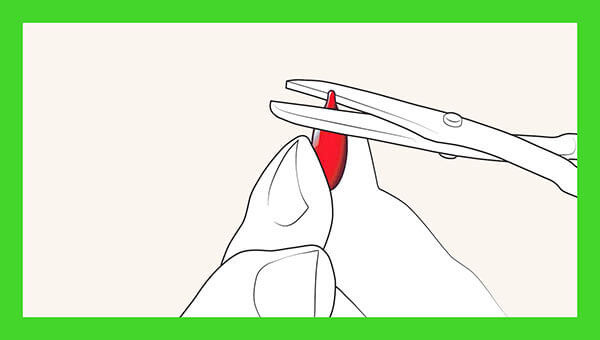
Cut off the tip of the capsule using clean scissors.

Without touching the child, squeeze the entire contents of the capsule into the child’s mouth. Discard the empty capsule.
Deworming
After you decide that the child is eligible for deworming, first, choose the correct dose of deworming based on the age of the child.

For children who are 12 to 23 months old (or 1 year up to 2 years), give a half of a tablet, crushed. Store the other half to use for another child.

For children who are 24 to 59 months old (or 2 years up to 5 years), give a whole tablet, crushed.
Note: if giving Mebendazole, give whole tablet for all children 12 to 59 months old.

Next, place either a half tablet or a whole tablet on a small, square piece of clean paper. Cover the tablet by folding the paper in half to make a triangle. Then crush the tablet into a fine powder using a glass bottle.
ALWAYS crush deworming tablets for ALL children under 5 years.
After crushing the tablet, ask the caregiver if the child is comfortable and make sure the child is calm. This is an important step to make sure the child will not choke. Never force a child to take deworming and do not give it to a child that is crying. Wait until the child is calm or ask that the child return later. A caregiver can walk around with the child to try to calm them.
Ask the caregiver to support the child’s head and help to open the child’s mouth. Remember, the caregiver must do this. To prevent infection, you must not touch the child yourself.

Use the folded paper to slowly pour the deworming powder into the child’s mouth. Be careful not to touch the child.
Alternate Crushing Method
If possible, crush the deworming tablet with a glass bottle or mortar and pestle. If you do not have a glass bottle, crush the tablets between two clean spoons or use a mortar and pestle.
Side Effects
Side effects are rare and only effect 5 out of 100 children and last a maximum of 2 days. If side effects last more than 2 days or if other symptoms develop, get medical help.
Possible side effects include:

Vomiting

Headache
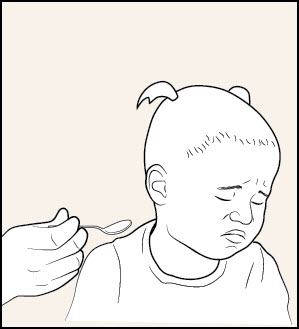
Loss of Appetite
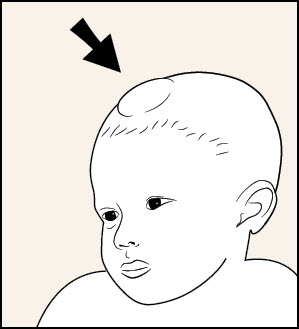
Swelling of the Fontanel (soft spot on head)
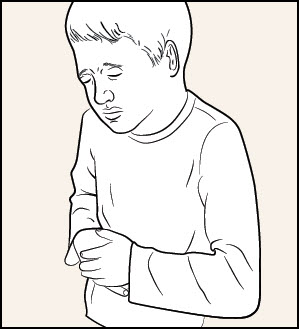
Mild Abdominal Pain

Diarrhea

Fatigue

